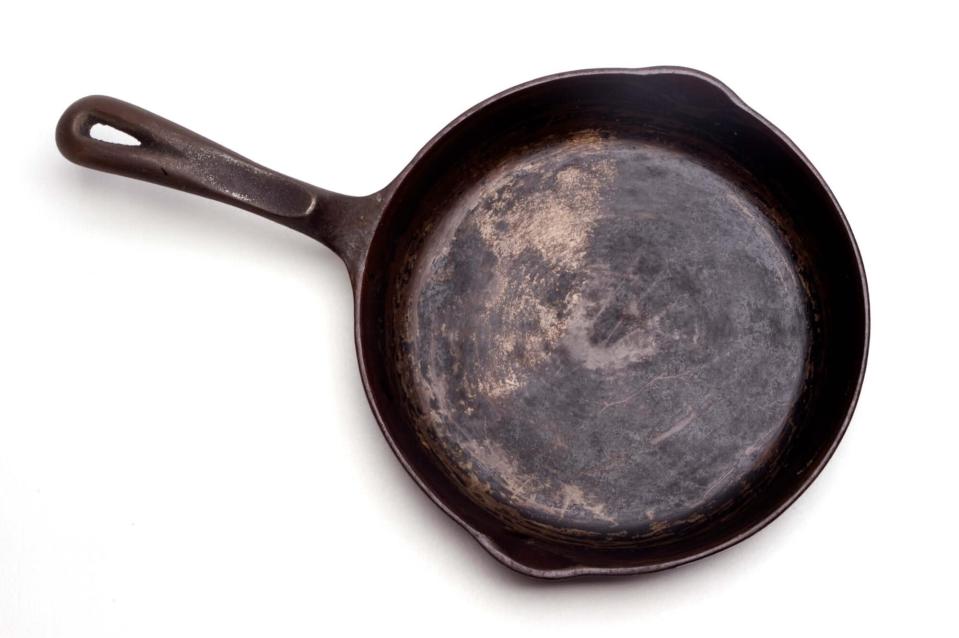
Getty Images
Are you up to date on your cast-iron know-how? To be sure, not a lot has changed if you haven’t brushed up on the topic in a few decades—perhaps only that many new pans come pre-seasoned. But if your cast-iron knowledge wasn’t passed down along with your skillet (lucky you if you find yourself in possession of a true heirloom), we’re here to enlighten. We’ve already uncovered the great myths surrounding our favorite cooking tool and yours, but now we’re taking it a step further with the things that no self-respecting Southerner ever cooks in cast iron.
Acidic Foods (Unless You Make It Snappy)
You might have heard that cooking acidic foods in your cast-iron skillet is a big no-no. Turns out, that’s just not the case. We broke down that misconception and encourage you to read up if you’re not already in the know. However, acidic foods (like tomato sauce, wine-braised meats, etc.) enter the red zone when they spend too much time cooking in the skillet.
They also aren’t a good idea if your skillet isn’t well seasoned, but more on that later. So what happens if you accidentally let your acid-heavy sauce simmer too long? It could take on a metallic taste or start to break down the seasoning on your skillet. Either way, they’re scenarios any cook would be wise to avoid.
Fish (Particularly Delicate Varieties)
This one likely comes as no surprise, but fish, particularly thin or delicate varieties, is not well-suited for your cast iron. Even if you’re lucky enough to flip your fillets without incident, chances are the skin will not make it through the process. Stick to your nonstick fry pan or oven for the best results.
Skillet Brownies (If You Just Fried a Batch of Chicken Last Night)
Many a Southerner might argue that cast iron is the true do-it-all pan, going from main dish to dessert cooking without giving you a second thought—but maybe it’s worth taking a pause. Your cast iron will retain a bit of flavor from the foods cooked in it, which is all part of the seasoning process.
This doesn’t mean you should skip the desserts though. If you want to go from frying chicken to baking up a batch of skillet brownies without too much of a savory carry-over, just take extra care in cleaning between foods. If your skillet is well-seasoned, all it should need is a good scrub. Skip the soap unless you’re dealing with a real stuck-on problem, in which case a smidgen (that’s a scientific term) of mild soap should do the trick without damage. Just make sure to season it afterward.
A Lot More (If Your Skillet Isn’t Properly Seasoned)
If your skillet is not properly seasoned and you’re attempting to cook just about anything, we’re going to go ahead and stop you right there. Do not pass go, do not collect $200, and we’re also revoking your Southern license to cook. You can have it back when you start to make better choices.
Cooking on unseasoned cast iron can result in sticking, rusting, and a myriad of other issues (some of which are outlined above). Lucky for cast-iron newbies, most skillets sold these days come pre-seasoned. Take your store-bought seasoning a step further though and add your own before you call it good to go.




More Stories
Dated Kitchen Features That Homebuyers Notice
Shake the fridge Shakshuka using up leftovers
Italian Meatloaf – Once Upon a Chef